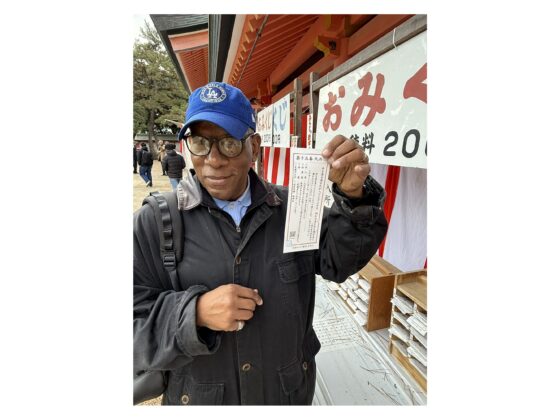Katherine Brownson (MBA ’12) shares her career experience of returning to work for a former employer in the following guest post to the Armstrong Center for Alumni Career Services’ Career Corner blog.
As I pressed the elevator button for the eighth floor, I glanced around to my fellow riders to see if I recognized anyone. It was just a matter of time until I ran into someone who would possibly question what I was doing in the building.
Coming out of Darden, I never imagined spending more than two years at a Fortune 500 company. Prior to Darden, I’d worked at startups with an average employee base hovering around 25 people. At first, my goal at DaVita was to get a big company name on my resume and gain experience that I could apply to a startup endeavor. As I settled in to the post-MBA world, I was surprised by how much I enjoyed my job and big company life. I was surrounded by intelligent, motivated people who pushed me to learn and grow while in an environment with resources I could never dream of in startup world.
After three years in a hybrid operations and finance role, I transitioned to DaVita’s corporate strategy team. I knew quickly the role wasn’t a good fit. I didn’t enjoy the consulting style of work and being further removed from the nuts and bolts of DaVita’s core business. I was unfulfilled. For the first time, I felt uncertain of my path ahead within the company. I broached the subject with my immediate boss, but her recommendations and subsequent career path conversations didn’t motivate or excite me. When an opportunity to join an early stage startup arose, I jumped at the chance to make a change.
My DaVita team wasn’t terribly shocked when I gave my two-weeks notice. I truly believe my co-workers were supportive of my decision to leave. I finished my final two weeks committed and positive. I told people honestly that I was leaving with mixed emotions. I’d grown so much personally and professionally and developed lasting friendships. Yet, I needed to see what else was out there. During my exit interview with the head of my group, I shared my honest opinion of the company and my team — the good and not-so-good — and left with a smile.
I didn’t vet the startup company as thoroughly as I should have. The strategic direction of the company was somewhat fluid across the multiple conversations I’d had with the founders. I convinced myself that was okay when I should have pushed harder to understand their vision at the onset. For numerous reasons, I knew it wasn’t a lasting situation for me. I chastised myself for making a hasty move, and yet, I knew exactly why I had.
As I’ve done in numerous other situations, I sought advice from Darden Alumni Career Services. When the initial suggestion of returning to DaVita was floated, I laughed.
After a few days and lots of deliberation, I began to warm to the idea. Would they have me back? What if I could go back into a role that fit me better? I liked the organization. I enjoyed the challenges of health care and having an impact of patient care. It seemed like a pretty straightforward decision with one major exception: my pride.
I began reaching out to mentors, both at DaVita and elsewhere. Everyone had their opinion about my next move, but, ultimately, it came down to my choice. It didn’t take long for word to get out at DaVita that I might be back in the job market. The positive response I received from former DaVita co-workers about a possible return abated the fears I had of bruising my professional pride.
After a few initial discussions, I felt fortunate to have a couple of warm opportunities available back at DaVita. I was determined this go-around to ensure it was the right role, right team and right boss for me. I ultimately narrowed my interest to a director of strategy position with one of DaVita’s smaller business units, Lifeline Vascular Access. Lifeline’s smaller size and challenging external environment due to changing regulations made it feel more entrepreneurial than other areas of DaVita, plus I liked that the role had a closer tie to operations.
Despite knowing many of the individuals at Lifeline, I went through the same formal interview process as everyone else. I submitted my resume, spoke to recruiters and interviewed with the team. I’ve realized that interviewing is a two-way engagement. It’s necessary to be critical and recognize when something feels right, or not. Meeting my now boss solidified my decision to accept the role if offered. And when the offer came, I knew I was making a sound decision.
Seven months after leaving DaVita with a box of belongings in my hands, I walked back into the building to assume my new role, a bit apprehensive, but excited.
It’s been four months since that day, and I’m still very happy with my decision.




